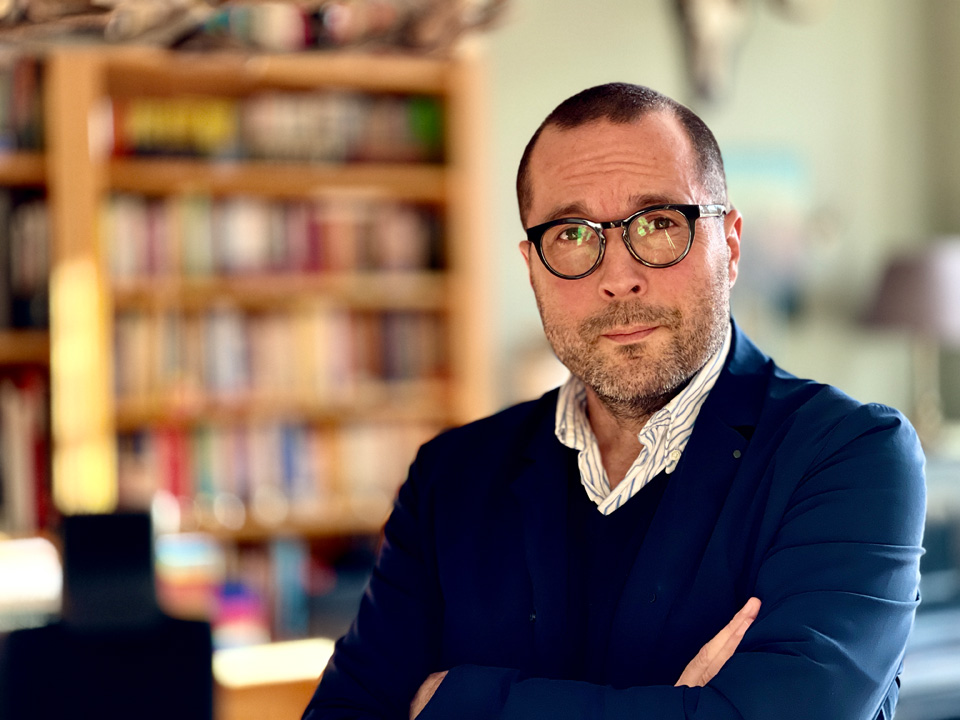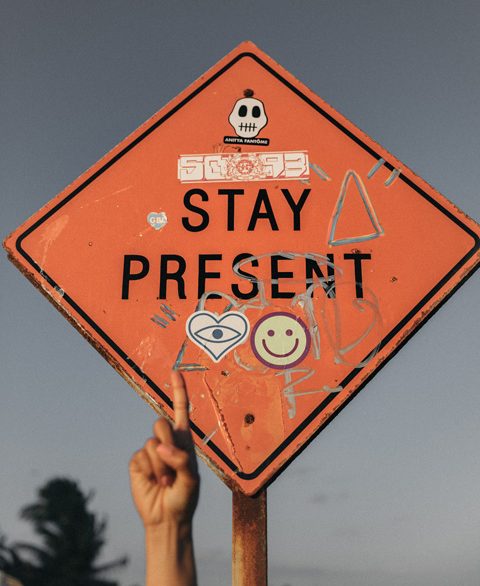The new TEC Columnist
Introducing the Futurologist Max Thinius
Futurologist Max Thinius – Introducing our future columnist


Max Thinius x TEC
»I got a kind of open-source gene.«
No future without a past. In what context did you start into your life? What has shaped you?
I was lucky enough to grow up in the middle of the Ruhr area [the western part of former West-Germany]. There was a very colourful and inspiring mix of very different kinds of people. Different social class backgrounds, skin colours and origins, political views… whatever. I learned to love people very much back then, because in the Ruhr area most of the people are authentic and very straight forward.
I already learnt back then: the more we did together, exchanged ideas, tried out new things together and shared our knowledge the more we all benefited. I got a kind of open-source gene – and to this day, life has not disappointed me in this respect. I also learned of course that one need to create an AFZ (asshole free zone) in which every exchange is a gain for everyone in this particular exclusive community.
When and why did you start to question the conventional perspective on the future and to work out a new approach to the topic of the future for yourself?
I have never been satisfied with the status quo somehow and have always come to the conclusion that it can’t be all there is really in terms of economy, society, politics, culture, togetherness, etc. – it has to be better. Especially when I started to get excited about the economy and its business models. That’s when I came across Wolfgang Mewes [a business economist and author] and his idea of a human centric economy. Later, in London, I met Anita Roddick, the founder of the Body Shop, who inspired me over the years and helped me to see things differently.
Above all, to prove that thinking differently and humanely is in the end always much more successful economically and politically. That’s what I learned from Anita Roddick: it’s not the perfect concept that matters, it is about the impetus and the magic of actually doing things. With these insights and accompanied by many great people I started to see things differently and more intense and I must have been about 12 years old.
The western societies most of the time deal with the future
in a very passive state of mind.

Do you have an explanation for why our society, and in parts also our economy, has never learned to actively think and plan for the future?
We actually think of the future almost exclusively in terms of probabilities. This is a typical way to deal with the future in the western world. It results from industrialization. The big wheel has to run efficiently and we have learned to avoid anything that could puzzle this. But that’s passive state of mind and an insanely exhausting one. Plus: the big “industrial wheel” is becoming less and less relevant. It is being replaced by structures that change on a daily basis.
Therefor it is much wiser to analyze what technology, what ethical currents and circumstances there are in a society in order to look for opportunities and re-sort them in different scenarios. That’s the way of actively shaping the future. That is something that’s happening in Africa right now far better and faster because African societies are not stuck in the last centuries industrial mind-set as for example the Europeans are.
If our future is to be positive, we must approach and think about it today with an equally positive impetus. In this context, do you have a favourite (historical) utopia that you see as a blueprint for the future?
Mahatma Gandhi fascinated me. He was the living proof that every person can change their own future and the future of others. Martin Luther King, too. But also from more recent times: there is Anita Roddick as mentioned, Nelson Mandela, Kofi Annan, but, don’t laugh: Elton John or the Stones are also among them. They have touched, changed and redefined people’s lives and sometimes even entire generations positively!

Which thought leaders from all over the world are inspiring for you?
Oh, there are so many! At the moment, I’m even talking to them every day because I’m writing a book. For example, there’s a youth hostel mother, a co-working operator, the chairman of a banking association, a teacher, a lead singer of an international country band, a state leader, a baker, a cheese affineur, a street-cooking family … you know, everyone can be a thought leader if they just want to be one. The world and it’s stories are so endlessly inspiring. Our future results from there and everyone can help to shape it.
Which topics are particularly important to you in your work right now and why?
The core of my work as a futurologist is to look at current technological, ethical and practical developments in society and to develop solutions based on new thinking. It is a digital way of thinking which triggers the 15 core disciplines of our lives which are health, living, work, mobility, education, leisure, generations, consumption & production, nutrition, finance, politics, networking, culture, climate and personal. I am exploring this new way of thinking which turned me into one of the few generalists there are in the field of futurology.
You set up a multimedia studio in lockdown times. Would you like to tell us more about it?
In pre-covid times I gave 120 lectures a year and all of a sudden everything was cancelled from one day to the other. Fortunately, a very dear friend of mine had a similar problem and quickly started to build up a digital studio. I joined in and now we do TV productions, live streaming session etc. The studio and all it’s opportunities challenged me and helped me to evolve much faster.

What are your upcoming projects – is it true that you are writing a book right now?
That’s one of the two big projects, that’s right. A book in which I collect the stories of people who are shaping the future. Celebrities, politicians and people like you and me … it’ll be a broad mix of these stories and my essays on the future and future topics. It’ll be entertaining, cheerful, positive and funny as well. It has to because I can’t stand the way especially our western societies are taking themselves far too seriously most of the times. That’s a waste of time. If everything goes according to plan, my book will be published in autumn 2022. The second project will start earlier, but I can’t talk about it yet. TEC will be one of the first to know – guaranteed.
We are pleased to welcome you as a TEC-columnist with immediate effect. What topic will you start with?
The Future-Cool-column will focus on the things that enrich our lives and will help to shape our future. My first column will focus on the new dimension of luxury: the NFTs – non fungible tokens.
Do you have a life motto?
I live 100% in the AFZ, the asshole free zone. You can’t get into the future any better than that.
Thank you, Max!






Join our Community